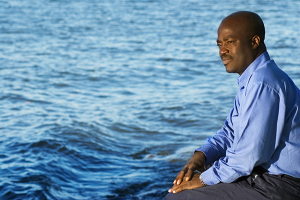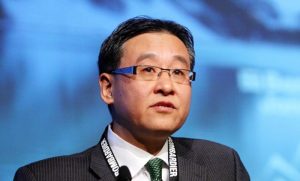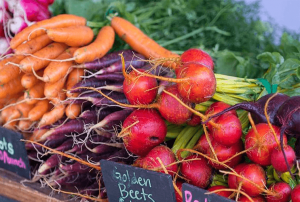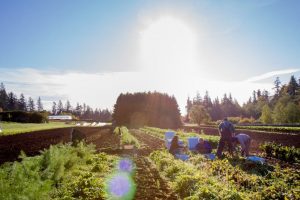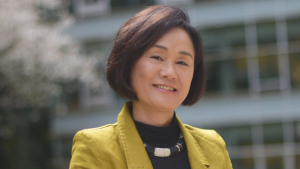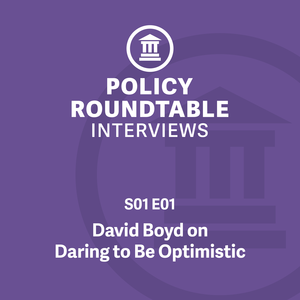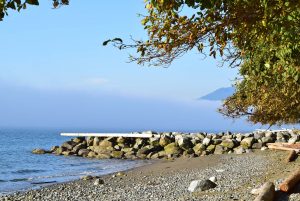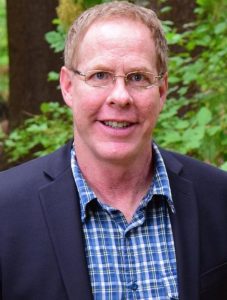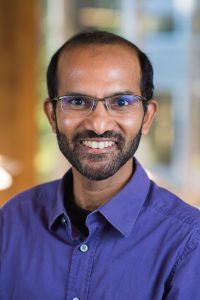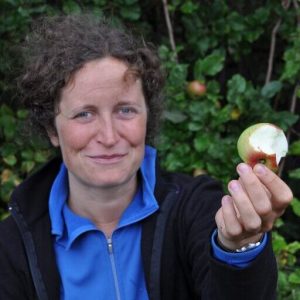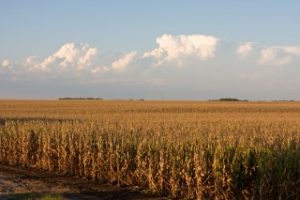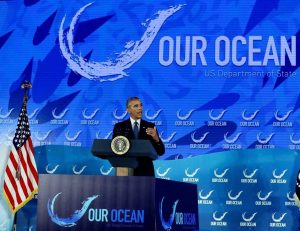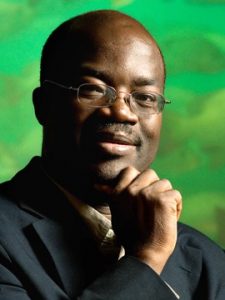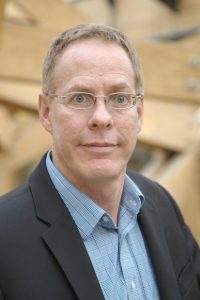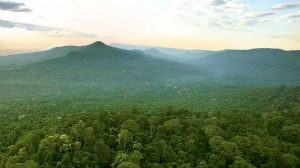MPPGA professor Rashid Sumaila wins Volvo Environment Prize
Dr. Rashid Sumaila, Professor with the School of Public Policy and Global Affairs and the Institute for the Oceans and Fisheries, has won the 2017 Volvo Environment Prize for his innovative work in fisheries economics and sustainable governance of ocean resources. His research covers all aspects of the future health of the oceans: overfishing, oil spills, plastics pollution, ocean acidification, and climate change.
Expanding role of micro, small, and medium enterprises provide opportunities for sustainable development
The Hill Times | Sep 12, 2017 | Written by: Dr. Gisèle Yasmeen and Vilupti Lok Barrineau
Insights on BC joining legal fights against Trans Mountain Pipeline
CTV News interviews Professor George Hoberg to gain further insight on BC’s action to join legal fights against the Trans Mountain Pipeline. He explores how these efforts could effectively postpone the pipeline project, and how it might affect the provinces relationship with both the federal and Alberta provincial governments.
Corbella: Our LNG could help the world cut CO2
Calgary Herald | Jul 29, 2017 | Featuring: Dr. Wenran Jiang
Liu Debates – “Should we label GMO foods?”
The Liu Debates aims to provide space for critical, engaging conversations with informed participants at UBC by hosting frequent events on a topic of current policy interest. “Should we label GMO foods?” That was the question posed to attendees of the “Liu Debates” held on March 2, 2017. The panelists – who come from diverse backgrounds […]
Many shades of gray—The context-dependent performance of organic agriculture
Many people choose organic thinking it’s better for humans and the planet, but a new UBC study by Liu Postdoctoral Fellow Verena Seufert and Professor Navin Ramankutty finds that might not always be the case. Find the study in Science Advances. Read the UBC Media Release. Abstract Organic agriculture is often proposed as a more sustainable […]
North Korea’s Interest in Climate Change
Voice of America | Mar 8, 2017 | Featuring: Dr. Kyung-Ae Park
David Boyd on Daring to Be Optimistic
Joanna Fensome and Mitch Hulse sit down with Dr David Boyd on his 2015 book The Optimistic Environmentalist: Progressing Toward a Greener Future, which from his experience as an environmental lawyer discusses why there is optimism in climate change policy.
Prof. Sumaila Receives Killam Faculty Research Prize
The Liu Institute for Global Issues is thrilled to congratulate Professor Rashid Sumaila, University of British Columbia’s 2016 Killam Faculty Research Prize winner in the Applied Science, Sciences Senior Category. Winners were selected by UBC’s Faculty Research Award Committee, which spans arts and humanities, applied science, science, and medicine. Professor Sumaila is a faculty member at the […]
The tumultuous revival of Keystone XL
Featured in the most recent episode of CBC’s Early Edition, MPPGA Professor George Hoberg discusses the straining relationship between the environment and economy, as Trump’s decision to revive the Keystone XL pipeline brings uncertainty to both the Canadian and American populous.
What is this thing called organic? How organic farming is codified in regulations
Published in Food Policy (vol. 68), a new paper led by UBC Postdoctoral Fellow Verena Seufert and co-authored by MPPGA Professor Navin Ramankutty and Tabea Mayerhofer examines why organic regulations need to better incorporate environmental best practices.
Pipeline politics: the battle of Kinder Morgan
In a recent Vancouver Sun article, MPPGA Professor George Hoberg provided insight on BC’s Kinder Morgan pipeline expansion, noting on the ultimate uncertainty of the project when considering the involvement of First Nations and opposing parties.
What is this thing called organic? – How organic farming is codified in regulations
A new paper led by UBC Postdoctoral Fellow Verena Seufert and co-authored by Professor Navin Ramankutty and Tabea Mayerhofer has been published in Food Policy. Learn why organic regulations need to better incorporate environmental best practices. Find the paper in Food Policy volume 68. Abstract Organic farming is one of the fastest growing sectors of world […]
Trump’s climate stance
Listen to this CBC interview with George Hoberg, Professor, Environmental and Natural Resource Policy at UBC’s Liu Institute for Global Issues on what Donald Trump’s climate policies could mean.
Green Revolution? Sustainable Development in North Korea
NK News | Oct 28, 2016 | Featuring: Dr. Kyung-Ae Park
A Return to Low Commodity Prices and U.S. Dumping
By Sophia Murphy, Liu Scholar Originally posted on October 20, 2016: Institute for Agriculture and Trade Policy (IATP) As international trade diplomats contemplate the latest move in their world—a formal complaint by the United States about China’s use of price supports for its farmers, lodged at the WTO last week—I am in Delhi to present […]
$11.4-billion PNW LNG project in B.C. approved by federal government
The federal government approved the $11.4-billion LNG project in B.C. on September 27th. The Liu Institute’s George Hoberg, professor of environmental and natural resource policy, spoke to The Province, saying that the approval is “a major step backward for the Trudeau government’s commitment to meet its Paris climate target.”
Liu Professor Sets Scene at 2016 Our Ocean Conference
“The notion that the ocean I grew up with is not something that I can pass on to my kids and my grandkids is unacceptable” – President Obama Obama’s opening remarks at the 2016 Our Ocean Conference highlight an ever growing concern that the oceans that shape our world are being taken for granted. September […]
High seas fisheries management could recoup losses due to climate change
Research by Rashid Sumaila, MPPGA Professor and Director of OceanCanada with UBC’s Institute for the Oceans and Fisheries, explores how the high seas can help us mitigate and adapt to the effects of climate change on marine ecosystems if they are closed to fishing.
Tough Decisions Ahead on Canada’s GHG Emissions Strategy
According to Professor George Hoberg, a meaningful climate plan needs to have, at minimum, a measurable target for reducing greenhouse gas emissions over a specified time period. Hoberg further argues that there is a need for enforceable policies that can reasonably be expected to achieve that climate target.
Why Would a Pirate Ship Want Insurance?
MPPGA Professor Rashid Sumaila, Director of the Fisheries Economics Research Unit at UBC Fisheries Centre, argues that reducing poachers’ access to insurance might be one way to combat illegal fishing. Furthermore, he estimates that losing their insurance would cause perhaps 40 percent of the ships that regularly fish illegally to stop doing so.
Time for the hard work on meaningful climate policy
According to Professor George Hoberg, Canada has so far relied on uncoordinated provincial climate initiatives, such as a carbon tax in BC, a ban on coal in Ontario, and regulatory instruments in Alberta, to meet its global commitments. Now, Hoberg argues, there is a need for new, bold policies to close the gap and meet Canada’s 2030 target.
Trudeau in lose-lose position on pipelines: UBC prof
According to Professor George Hoberg, PM Justin Trudeau has put himself in a position where he can’t avoid a “massive” setback to his political standing in one of three provinces: B.C., Alberta and Quebec. “He’s boxed himself in politically and now he can’t avoid expending massive political capital by offending…important political allies,” Hoberg said in an interview.
Land-use regime shifts: an analytical framework and agenda for future land-use research
Land-use regime shifts: an analytical framework and agenda for future land-use research Navin Ramankutty (Liu Faculty, University of British Columbia) and Oliver Coomes June, 2016 This publication is available for download here. Source: Ecology and Society Vol. 21, No.2. Article 1. Liu Professor Navin Ramankutty and co-author Oliver Coomes present an analytical framework for understanding land-use regime shifts […]
